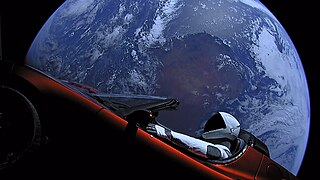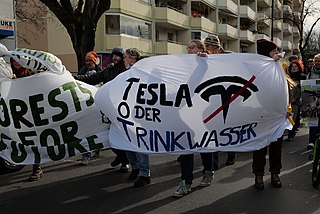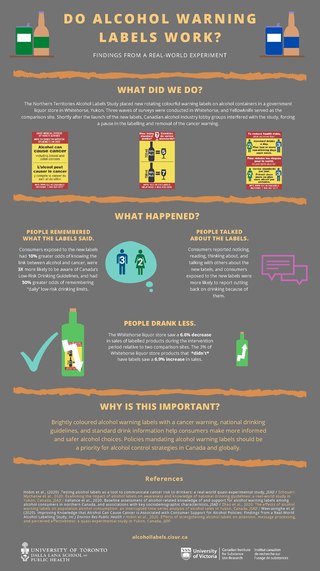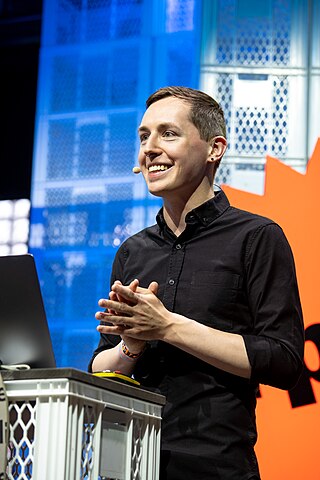Related Research Articles

Elon Reeve Musk is a businessman and investor. He is the founder, chairman, CEO, and CTO of SpaceX; angel investor, CEO, product architect, and former chairman of Tesla, Inc.; owner, executive chairman, and CTO of X Corp.; founder of The Boring Company and xAI; co-founder of Neuralink and OpenAI; and president of the Musk Foundation. He is one of the wealthiest people in the world; as of April 2024, Forbes estimates his net worth to be US$196 billion.

John Doyle is a Canadian writer who is a television critic at The Globe and Mail.

Quill & Quire is a Canadian magazine about the book and publishing industry. The magazine was launched in 1935 and has an average circulation of 5,000 copies per issue, with a publisher-claimed readership of 25,000. Quill & Quire reviews books and magazines and provides a forum for discussion of trends in the publishing industry. The publication is considered a significant source of short reviews for new Canadian books.

Tesla, Inc. is an American multinational automotive and clean energy company headquartered in Austin, Texas, which designs, manufactures and sells battery electric vehicles (BEVs), stationary battery energy storage devices from home to grid-scale, solar panels and solar shingles, and related products and services. The company is also developing artificial intelligence and robotics products.

Marie-Louise Gay is a Canadian children's writer and illustrator. She has received numerous awards for her written and illustrated works in both French and English, including the 2005 Vicky Metcalf Award, multiple Governor General's Awards, and multiple Janet Savage Blachford Prizes, among others.

Yann Martel, is a Canadian author who wrote the Man Booker Prize–winning novel Life of Pi, an international bestseller published in more than 50 territories. It has sold more than 12 million copies worldwide and spent more than a year on the bestseller lists of the New York Times and The Globe and Mail, among many other best-selling lists. Life of Pi was adapted for a movie directed by Ang Lee, garnering four Oscars including Best Director and winning the Golden Globe Award for Best Original Score.

Esi Edugyan is a Canadian novelist. She has twice won the Giller Prize, for her novels Half-Blood Blues (2011) and Washington Black (2018).

"Wet Nellie" is the behind-the-scenes name given to a custom-built submarine, created for the 1977 James Bond film The Spy Who Loved Me in the shape of a Lotus Esprit S1 sports car. The Esprit was chosen to give James Bond a glamorous car to drive. "Wet Nellie" is named in reference to Little Nellie, an autogyro featured in the James Bond film You Only Live Twice, which was itself named after actress and comedian Nellie Wallace.
Tesla, Inc., an electric vehicle manufacturer and clean energy company founded in San Carlos, California in 2003 by American entrepreneurs Martin Eberhard and Marc Tarpenning. The company is named after Serbian-American inventor Nikola Tesla. Tesla is the world's leading electric vehicle manufacturer, and, as of the end of 2021, Tesla's cumulative global vehicle sales totaled 2.3 million units.

The Boring Company (TBC) is an American infrastructure, tunnel construction services, and equipment company founded by Elon Musk. TBC was founded as a subsidiary of SpaceX in 2017, and was spun off as a separate corporation in 2018. TBC has completed one tunneling project that is open to the public, as well as multiple test tunnels.

Elon Musk's Tesla Roadster is an electric sports car that served as the dummy payload for the February 2018 Falcon Heavy test flight and became an artificial satellite of the Sun. A mannequin in a spacesuit, dubbed "Starman", occupies the driver's seat. The car and rocket are products of Tesla and SpaceX, respectively, both companies headed by Elon Musk. The 2010 Roadster is personally owned by and previously used by Musk for commuting to work. It is the first production car launched into space.

Alcohol packaging warning messages are warning messages that appear on the packaging of alcoholic drinks concerning their health effects. They have been implemented in an effort to enhance the public's awareness of the harmful effects of consuming alcoholic beverages, especially with respect to foetal alcohol syndrome and alcohol's carcinogenic properties. In general, warnings used in different countries try to emphasize the same messages. Such warnings have been required in alcohol advertising for many years, although the content of the warnings differ by nation.
Jarrett Walker is an American transit consultant and author. He has a consulting firm based in Portland, Oregon, that has worked on projects across North America, Europe, and Oceania. Walker is the author of the blog Human Transit and book of the same name.
Elon Musk is the CEO or owner of multiple companies including Tesla, SpaceX, and X Corp, and has expressed many views on a wide variety of subjects, ranging from politics to science.

Tesla, Inc. has been criticized for its cars, workplace culture, business practices, and occupational safety. Many of the criticisms are also directed toward Elon Musk, the company's CEO and Product Architect. Critics have also accused Tesla of deceptive marketing, unfulfilled promises, and fraud. The company is currently facing criminal and civil investigations into its self-driving claims. Critics have highlighted Tesla's downplaying of issues, and Tesla's alleged retaliation against several whistleblowers.
Nazanine Hozar is an Iranian Canadian writer, whose debut novel Aria was published in 2019.
Edward (Ed) Niedermeyer is an American author, analyst, and critic who focuses on the automotive industry and mobility innovation. His writing has been published in The New York Times, The Truth About Cars, and The Wall Street Journal, and in 2019, his book Ludicrous: The Unvarnished Story of Tesla Motors was released. Niedermeyer cohosts The Autonocast, a podcast about autonomous vehicles technology and its effects.

Road to Nowhere: What Silicon Valley Gets Wrong about the Future of Transportation is a 2022 non-fiction book by Canadian author Paris Marx.

The Northern Territories Alcohol Labels Study was a scientific experiment in Canada on the effects of alcohol warning labels. It was terminated after lobbying from the alcohol industry, and later relaunched with industry-advocated experimental design changes: omitting the "Alcohol can cause cancer" label, not labelling some alcohol products, and shortening the time period. Enough data was gathered to show that all of the labels used in the study were simple, cheap, and effective, and it recommended that they should be required worldwide.

Paris Marx is a Canadian technology journalist, author, podcaster, and critic with articles written for Time, Wired, NBC News, and other publications. Marx is the author of Road to Nowhere: What Silicon Valley Gets Wrong about the Future of Transportation and hosts the award-winning Tech Industry-critical podcast Tech Won't Save Us.
References
- 1 2 "James Wilt". The Narwhal.
- ↑ "James Wilt". the Guardian. Retrieved 18 November 2022.
- ↑ "James Wilt - Authors". Repeater Books.
- ↑ "James Wilt". Canada's National Observer.
- ↑ "Dealin' with Doom and Gloom: James Wilt on Climate Change Journalism". Radio Free Winnipeg. 9 October 2017.
- ↑ "MINI-EP: James Wilt's Very Nice Interview". The Alberta Advantage Podcast. 18 January 2019.
- ↑ Windeyer, Chris (9 May 2020). "Booze industry brouhaha over Yukon warning labels backfired, study suggests". CBC News. Retrieved 29 October 2022.
- ↑ Wilt, James (21 May 2018). "Alcohol-industry officials lobbied Yukon to halt warning-label study, e-mails show". The Globe and Mail.
- ↑ Austen, Ian (6 January 2018). "Yukon Government Gives In to Liquor Industry on Warning Label Experiment". The New York Times.
- ↑ "Lucky Seven: James Wilt's New Book Examines Public Transportation's Failings and Possibilities". open-book.ca. Open Book.
- 1 2 Kowalchuk, Kristine (1 December 2020). "Do Androids Dream of Electric Cars?". Alberta Views - The Magazine for Engaged Citizens.
- ↑ Selway, Shawn (15 May 2020). "Moving On: Shawn Selway Reviews James Wilt's Do Androids Dream of Electric Cars? Public Transit in the Age of Google, Uber, and Elon Musk". Hamilton Review of Books.
- ↑ Hutt, James (2021-01-04). "Do Androids Dream of Electric Cars?". ourtimes.ca. Our Times.
- ↑ "Do Androids Dream of Electric Cars?: Public Transit in the Age of Google, Uber, and Elon Musk - Quill and Quire". Quill and Quire - Canada's magazine of book news and reviews. 18 June 2020.
- ↑ Laforest, Joël (2021). "Do Androids Dream of Electric Cars? Public Transit in the Age of Google, Uber, and Elon Musk by James Wilt" (PDF). Labour / Le Travail. 87 (1): 203–205. doi:10.1353/llt.2021.0012. S2CID 236726080.
- ↑ Kelaskar, Isha (26 February 2021). "Elon Musk: Do Androids dream of Electric Cars?". The Tech Outlook.
- ↑ Weeks, Josh (July 15, 2022). "Drinking Up the Revolution". 3:AM Magazine. Retrieved 18 November 2022.
- ↑ Busby, Mattha. "We Need Democratic Control of the Alcohol Industry". jacobin.com.